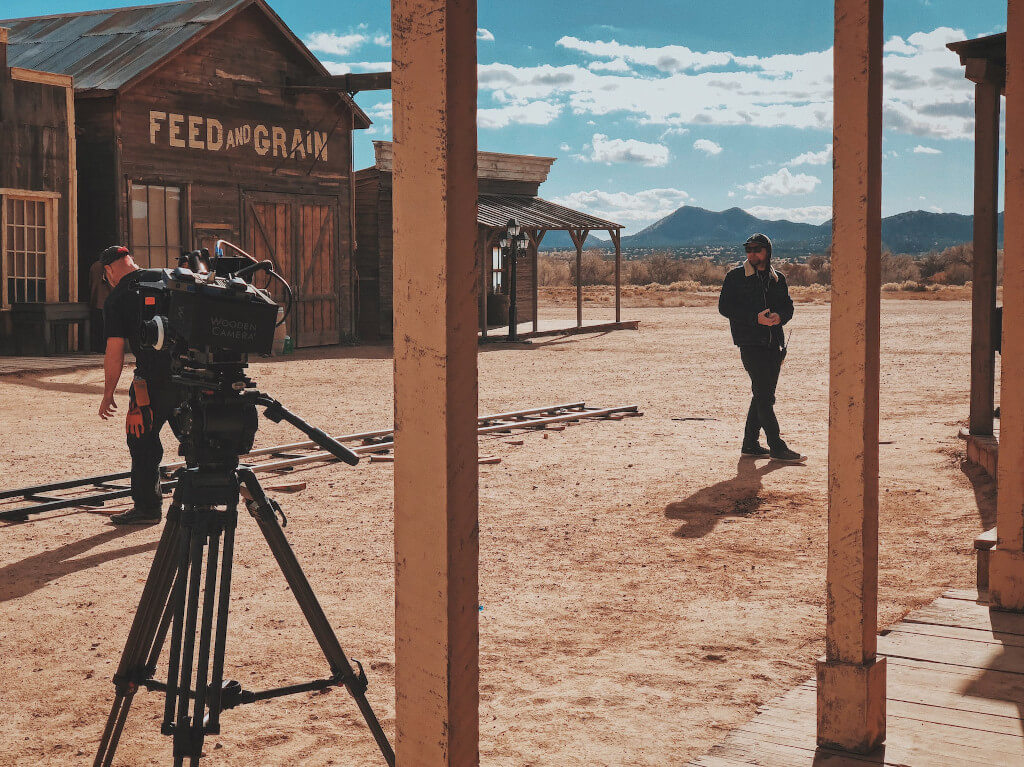The film industry has grown tremendously in this quaint community over the years. The film industry in Cape Town has grown fast from its humble beginnings to become a global centre. In this essay, we set out on a thrilling adventure exploring the illustrious history and promising future of cinema in Cape Town. We start with the defining moment when Hollywood started paying attention to this wonderful metropolis. We then discuss the varied topography, pleasant climate, exceptional talent pool, and state-of-the-art facilities that have drawn filmmakers from all over the world.
Cape Town’s expanding cultural and economic importance will be highlighted, as will the many blockbuster films that have used the city as a location over the years. We’ll also take a look at how Cape Town has benefited from the global film production industry, including the creation of new jobs and an uptick in tourists. We will also talk about the challenges of making films for a worldwide audience and the unique solutions that have been developed to overcome them.
We will also discuss the significance of government policies and funding in enticing and hosting international film crews. As we reach the end of our voyage, we will look ahead to the exciting trends, ambitions, and possible growth that lie ahead for Cape Town’s international film industry. Get some popcorn and settle back as we explore the fascinating history of Cape Town’s rise to prominence as a filmmaking hub for the world.
Cape Town’s Film Industry: An Overview
Cape Town has a long history as a filming location due to the city’s varied and beautiful scenery, which has been used in countless films throughout the years. Authentic representations of South African culture and storytelling were at the heart of the country’s early film industry. Cape Town did not emerge as a major location for Hollywood productions until the late 1990s.
Filmmakers from all over the world looking for unique and exotic locations have been drawn to the city due to its stunning beaches and rugged mountains. From that moment on, Cape Town became a magnet for major Hollywood productions. Foreign films like “Cry, the Beloved Country” (1995) and “The Piano Player” (2002) were among the first to make use of the city’s splendour and help develop its reputation as an appealing filming location. Since then, Cape Town has continued to be one of the world’s most sought-after locations for filming, drawing a regular stream of A-list films from around the world.
Feature Notable International Films Shot in Cape Town

The fact that so many high-profile films have been shot in Cape Town attests to the city’s popularity as a location for filmmakers around the world. Numerous high-profile productions have chosen to film in the city due to its diversified landscapes, advanced infrastructure, and skilled local crews. For example, Marvel Studios has chosen Cape Town as the location for several of their blockbuster superhero films, including “Black Panther” (2018), “Thor: Ragnarok” (2017), and “Avengers: Age of Ultron” (2015). Movies like “Mad Max: Fury Road” (2015), “Safe House” (2012), and “Blood Diamond” (2006) were filmed in Cape Town because of its breathtaking surroundings.
Cape Town has also become a popular filming site, with shows like “Black Sails” (2014-2017) and “Warrior” (2019-present) choosing the city as their home base. Cape Town’s status as a premier filmmaking location is enhanced by the presence of these large-scale projects, which also provide economic and cultural advantages to the city.
Economic Consequences for Cape Town
Jobs have been created, and tourism has been boosted, thanks in large part to Cape Town’s international film production business. Cape Town has seen an increase in employment prospects across industries as a result of its selection as a filming destination for large international films. Everyone from actors to those who work in transportation to those who work in construction is a part of the film industry. The increased need for professionals and service providers has resulted in new opportunities and financial gain.
Furthermore, the presence of foreign film projects has drawn travelers eager to see the sites used in their favourite films and television shows. Spending on hotels, restaurants, public transit, and other tourist-related services is boosted by this flood of visitors. As Cape Town becomes more well-known as a result of its appearances in foreign films and shows, the economic impact will last well beyond the length of production. Cape Town’s economy, workforce, and reputation as an arts mecca have all benefited greatly from the city’s participation in the international film production sector.
Difficulties and Possible Answers
While there are certainly benefits to using Cape Town as a filming site, there are also obstacles that must be overcome when working with an international crew. Obtaining the necessary licenses and approvals can be a frustrating ordeal. Filming locations, crew, and equipment must all comply with local regulations to protect residents, wildlife, and cultural sites. Cape Town has simplified the permitting procedure and set up film offices to assist overseas companies with advice and resources. Constraints on financial resources are an additional obstacle because of the high price of overseas travel, lodging, and logistics. To offset this, production companies frequently team up with Cape Town’s native service providers and tap into the city’s and the government’s free or low-cost resources and incentives.
Not all foreign crew members will be conversant in the local languages, which can be an additional hurdle. Skilled local crew members, many of whom are bilingual or multilingual, help to close this communication gap, though. with addition, Cape Town’s film industry has built a solid infrastructure of production firms, facilitators, and service providers to aid with the administrative and logistical aspects of foreign projects. Despite these obstacles, Cape Town has continued to be a popular location for international film productions thanks to the city’s helpful infrastructure, streamlined procedures, and partnerships with local specialists.
Policies and Assistance from the Government
The city of Cape Town relies heavily on government policy and support to entice and accommodate foreign film productions. The government of South Africa, in conjunction with municipal authorities, has instituted several regulations and incentives designed to attract international filmmakers to Cape Town. Financial incentives like rebates and grants are provided as part of these programmes to reduce manufacturing costs and make Cape Town a more viable alternative. The film industry in South Africa is aggressively promoted and supported by the Department of Trade, Industry, and Competition (DTIC) and the South African Film Commission (SAFC), which provides resources, assistance, and guidance to foreign projects.
Cape Town has made it easier to film by opening film offices and streamlining the permitting process. The government’s dedication to the film industry goes beyond monetary incentives because of the favourable effects foreign productions have on the economy, the creation of jobs, and the cultural interchange. The government has done an excellent job of marketing Cape Town as a friendly and alluring location for international film productions by creating an atmosphere of support, collaboration, and facilitation.
Trends In Cape Town
Several interesting trends and growth prospects are on the horizon for international film production in Cape Town, which bodes well for the industry’s future. Increasingly, people want to hear stories that reflect their own experiences and perspectives, which is a trend that fits in well with Cape Town’s diverse culture and beautiful scenery. Cape Town is well-positioned to attract a growing number of foreign productions as the film industry throughout the world continues to thrive. More and more filmmakers are placing a premium on eco-friendly methods, thus it stands to reason that the city’s dedication to sustainability will have a significant impact on the future of filmmaking in the area.
Cape Town is now able to reach a wider audience than ever before because to the proliferation of digital platforms and the innovations they enable. Cape Town plans to keep up its investment in quality infrastructure, the development of homegrown talent, and collaborative relationships with studios across the world. Cape Town is well-positioned to maintain its position as a world leader in international film production thanks to the city’s undeniable appeal, the government’s encouraging policies, and the city’s commitment to promoting a robust film industry.
We have traced Cape Town’s rise from relative obscurity to international prominence as a film production centre. We have talked about Cape Town’s special appeal, the several large international productions that have been filmed there, the city’s economic impact, the difficulties encountered by international productions, and the importance of government policies and support. Emerging fashions, sustainability initiatives, and technological breakthroughs all point to bright prospects for international film production in Cape Town in the years to come. The attractive vistas, varied story chances, and helpful infrastructure in Cape Town contribute to the city’s allure as a film production centre on a global scale. Cape Town’s status as a leading location for international film production is secure as directors from all over the world recognise the city’s filmmaking potential.





